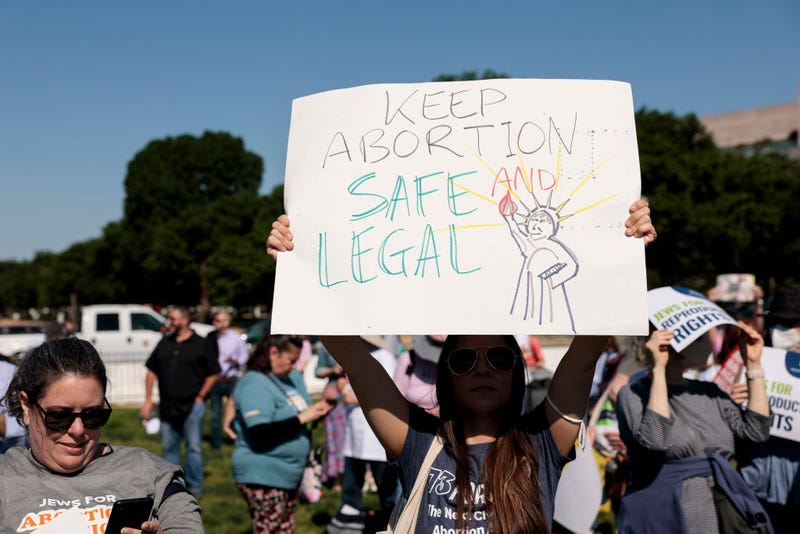
SAN FRANCISCO (KCBS RADIO) – Oklahoma lawmakers just passed a law that bans abortions at "fertilization," making it the strictest abortion law in the nation if the governor signs it, which seems likely.
For more, stream KCBS Radio now.
Fertilization means that, once a sperm fertilizes an egg, abortion is not an option.
This leaves many unanswered questions as to how this might affect the morning-after pill, in vitro fertilization, or other scenarios.
"It's not clear," said Mary Ziegler, Professor of Law at UC Davis and author of "Dollars for Life: The Anti-Abortion Movement and the Fall of the Republic," with KCBS Radio's Margie Shafer on Thursday.
"There's a medical emergency exception in the Oklahoma bill," she said. But a lot of emergency exceptions in bills like this popping up elsewhere are not very clear.
"So you may have real threats to people who need treatment for miscarriages, not just because the law necessarily intended that to happen, although that's possible, but also just because doctors are not going to want to face endless lawsuits in the way this kind of statute authorizes," said Ziegler.
Oklahoma's law is not necessarily intended to include contraception, like the morning after pill, but that’s not very helpful either, because people don’t always agree as to what counts as abortion and what counts as contraception, she said.
"We just don't know how states are going to enforce these laws," she said. It may come down to individual prosecutors.
The law is modeled after a similar one in Texas, that relies on civilian suits for enforcement.
But the Texas law prohibits abortion after six weeks, which is extremely early in a pregnancy. With the Oklahoma law, women aren't going to know that they're pregnant until it's too late.
"Essentially it would mean no legal abortion at all," she said. "Except potentially in these very narrow medical emergencies."
And this is likely just the beginning. When Roe v. Wade gets overturned, about half of the states in the country will probably move to criminalize abortion, said Ziegler.
"Of course we'll see the fight continue," she said. Some of the more politically uncertain states, like Michigan and Florida, could be on the fence about the issue.
Some laws, like the Oklahoma law, could even penalize people for donating to abortion funds in the state for "aiding and abetting" abortion.
"People don't want to run that risk, so there's a tremendous chilling effect," she said.
DOWNLOAD the Audacy App
SIGN UP and follow KCBS Radio
Facebook | Twitter | Instagram

